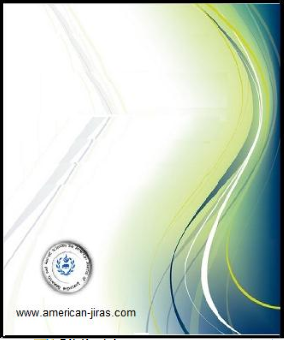
| | ARTICLES | Volume 1, Issue 8, Pages 267-273 (October 2015) |
| Research Article EFFECT OF PHASE FEEDING ON BROILER PERFORMANCE AND SERUM-CARCASS LIPIDS | Hamdeen yahia dawood | and | Omar El- Amin Mohammed |. American Journal of Innovative Research and Applied Sciences. 2015; 1(8):267-273. | PDF FULL TEXT | |Received | 28 August 2015 | |Accepted | 16 September 2015| |Published | 21 September 2015| |
ABSTRACT Background: It is well established now that fat deposition is governed by the genetic, nutritional and management practices. However, most influenced agent in this respect is the nutritional factors mainly phase feeding. Objectives: This experiment was conducted to evaluate the effect of phase feeding diets (starter, grower and finisher) on broiler performance, serum-carcass cholesterol and fatty acids profile. Material and Methods: A number of 90 chicks (Ross308) from the healthy and uniform chicks were selected and (Ross308) reared for six weeks in deep litter open house and assigned randomly to the three dietary treatments each replicated three times (nine experimental pens, at the rate of ten chicks per pen). Treatment one consisted of one diet (starter) for all experimental period. Treatment two consisted of two diets (starter and grower) introduced three week for each. Treatment three consisted of three diets (starter, grower, finisher) each introduced for two weeks. Results: the phase feeding systems was significantly decreased the overall broiler performance, positive but insignificant effect on carcass parameters, provoked significant increase on liver, heart, and abdominal fat pad, and no significant effect on cholesterol and triglycerides of carcass, serum or abdominal fat pad was observed. Concussion: The phase feeding manipulation improved the carcass quality through elevating the cholesterol and triglycerides of the abdominal fat pad. Keywords: Feeding, weight gain, performance, carcass. |

This article is made freely available as part of this journal's Open Access:

Authors affiliation:
1. University of Zalingei | department of animal production | Zalingei | Sudan |
2. university of Khartoum | College of animal production | Department of poultry production | Khartoum | Sudan |
1. University of Zalingei | department of animal production | Zalingei | Sudan |
2. university of Khartoum | College of animal production | Department of poultry production | Khartoum | Sudan |
Authors Copyright © 2015: | Hamdeen yahia dawood1 | and | Omar El- Amin Mohammed2 |
Contact information

American Journal of Innovative Research & Applied Sciences
Share us on Social Media Links:

| ISSN: 2429-5396 (e) | www.american-jiras.com | Copyright © 2014, ajiras, Atlantic Center for Research Sciences, All Rights Reserved |
| Web Site Form: v 0.1.05 | JF 22 Cours, Wellington le Clairval, Lillebonne | France |
| Web Site Form: v 0.1.05 | JF 22 Cours, Wellington le Clairval, Lillebonne | France |


|Manuscript | Ref.1- ajiras 280815 |


ResearchBib, Google Scholar, SIS database, i.f.s.i.j, Scribd, IISJ, Eurasian Scientific Journal Index (ESJI), Indianscience.in, arastirmax, Directory of Research Journals Indexing, Pak Academic Sesearch, AcademicKeays, CiteSeerX, UDL Library, CAS Abstracts, J-Gate, WorldCat, Scirus, IET Inspec Direct, and getCited

American Journal of innovative
Research & Applied Sciences
Research & Applied Sciences
Indexed by:
ISSN 2429-5396 (Online)
| HOME || ABOUT US || ARCHIVES || AIMS AND SCOP || AUTHORS || REVIEW|| SUBMIT MANUSCRIPT || EDITORIAL BOARD || CONTACT US |
| HOME | ABOUT US | ARCHIVE | AIMS AND SCOP | AUTHORS | REVIEW | SUMIBMIT MANUSCRIPT | EDITORIAL BOARED | PUBLICATION FEE |
| October | VOLUME 1 | N° 8 | 2015 |
